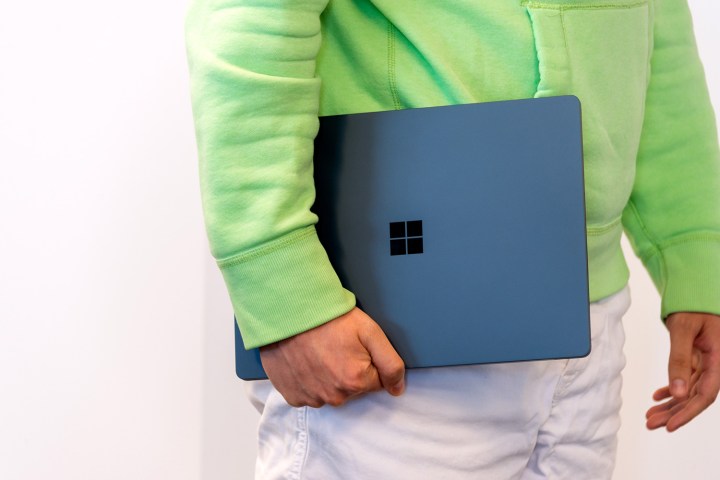
The Surface line was not a success when it was initially released in 2012, but over the years has become a hotly competitive product line in a hotly competitive market. With that in mind, it was surprising when executives from Lenovo and Canalys recently suggested Microsoft could kill off the brand by 2019 (via OnMsft) due to declining hardware sales.
That, according to Microsoft, is nonsense.
It’s the “tabloid rumor of the week,” Panay said during a discussion of Microsoft’s hardware business (via BusinessInsider). Suggesting that Microsoft had no plans to exit the Surface game, he said that the Surface line was about more than selling hardware. Improvements made to its line often translate over to other facets of Microsoft’s business. For example, the Surface Pen stylus was improved for the Surface range and has now helped bolster the use of styluses on Windows desktops.
As pointed out by BusinessInsider, Microsoft has faced problems with its Surface line before. With earlier renditions of the hardware in 2013, it was forced to swallow a near billion dollar write-off due to unsold stock of the convertible laptops. Although the company is not facing such a dire situation now, it’s perhaps no surprise that given that history, Microsoft is willing to ride out temporary shortfalls in the hopes of a resurgence.
We would certainly be saddened if Microsoft did decide that the Surface line is no longer worth supporting. We call the latest Surface Pro, the best 2-in-1 ever made and the more performance-focused Surface Book wasn’t a slouch either.
While a dip in sales might cause Microsoft to look at its range and how it stocks and sells certain models, it doesn’t appear as if any drastic changes are coming to Surface anytime soon.
Editors' Recommendations
- Microsoft’s next event could reveal the Surface Pro we’ve been waiting for
- This sleeper Asus laptop is faster and cheaper than Microsoft’s Surface Laptop Go 3
- Microsoft’s Surface Laptop Go 3 is a more capable budget laptop
- Microsoft’s executive shake-up casts a shadow on upcoming Surface event
- Microsoft ‘special event’ set for September – Surfaces and AI announcements likely




